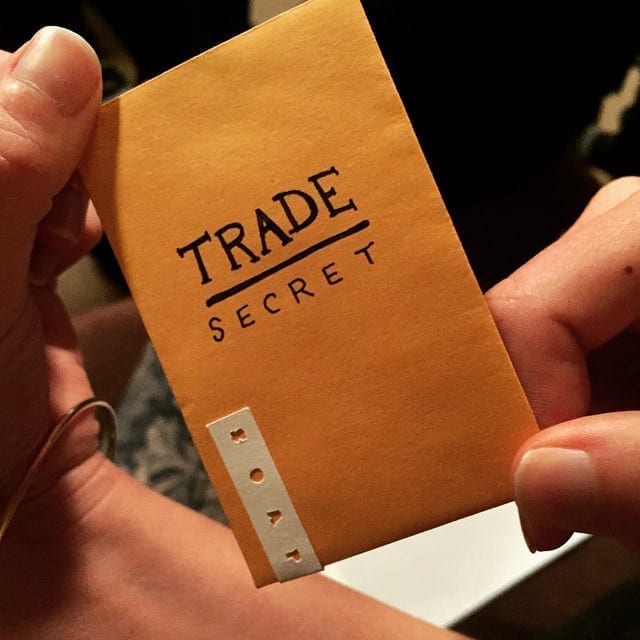Our friends at Lex Machina, a LexisNexis company and creator of the award-winning Legal Analytics® platform, recently announced the release of the company’s first-ever Trade Secret Litigation Report, which represents the most comprehensive and accurate dataset available for analyzing trade secret misappropriation cases. The new report reveals trends and insights from litigation that encompasses more than 9,800 cases brought under state trade secret laws and the federal Defend Trade Secrets Act of 2016 (DTSA).
Trade secret law is a hot topic among litigators. With the passage of the DTSA and high-profile cases at tech companies like Apple, Uber, and Google, practitioners want to find out more about litigation strategy in these cases. In this report, Lex Machina is excited to share highlights from its platform, including the number of district court filings, injunctive relief metrics (including timing analytics), findings and case resolutions, top law firms, and damages.
Because there are no Nature of Suit (NOS) codes for trade secrets cases in PACER, the database of district court case filings, Lex Machina takes an “all of the above” approach to finding and tagging cases. Natural language processing algorithms are deployed across millions of PACER documents across various NOS codes to identify trade secret-related terms, and cases filed with a trade secret Cause of Action (COA) code are included. Additional algorithms detect claims under the DTSA.
Using these techniques, the report reveals that trade secret case filings, after years of hovering around 900 cases per year, increased sharply in 2017 to 1,134 cases (a gain of more 30% over 2016) on the heels of the passing of the DTSA. The report also includes a DTSA filings chart from its passage on May 11, 2016 to June 30, 2018 broken down by quarter. DTSA filings appear steady since the second quarter of 2017, but are still only 64% of the overall 2017 filings.
The report includes data on findings of trade secret misappropriation under state law or the DTSA, findings related to trade secret ownership and validity, as well as defenses. Lex Machina specifically annotates trade secret validity issues such as a “failure to identify trade secret,” “readily known/generally ascertainable,” and “failure to maintain secrecy.” These findings reveal that trade secret litigation is fact-intensive with close scrutiny paid towards whether or not a protectable trade secret exists. For example, cases resolving on summary judgment favor Claim Defendants nine times as often as Claimants on decisions relating to trade secret ownership and validity. By contrast, Claimants are favored when these issues resolve at trial.
Among the other highlights presented in the report:
- Law firms: The top law firms for Plaintiffs and Defendants consist of nationwide law firms known for their labor and employment practices. Top three plaintiff firms for cases filed from 2009 to 2018 Q2 are Littler Mendelson (201 cases), Jackson Lewis (133 cases) and Seyfarth Shaw (132 cases). Among defendant firms, Ogletree Deakins Nash Smoak & Stewart lead the list with 93 cases, followed by Jackson Lewis (89 cases) and Littler Mendelson (74 cases).
- Damages: Leading the list of top ten jury awards from 2009 to 2018 Q2 are the historically high $919,900,000 in actual damages/lost profits against Kolon Industries in E.I. du Pont de Nemours and Company v. Kolon Industries, Inc. et al (vacated on appeal); $74,6000,000 in actual damages/lost profits and punitive/willfulness damages against Caterpillar in Miller UK Ltd. et al v. Caterpillar, Inc.; and $70,000,000 in reasonable royalty damages against Neovasc, and Neovasc Tiara in CardiAQ Valve Technologies, Inc. v. Neovasc Inc. et al.
“Until very recently, accurate data about damages, case findings and resolutions, injunctive relief and timings, and the top firms in trade secret litigation has been almost impossible to come by. That’s why our trade secrets litigation module was among the most requested additions to the Legal Analytics platform – and why we are so pleased to be able to offer this new report to the industry,” said Karl Harris, President & COO of Lex Machina. “The new dataset represented in the 2018 Trade Secret Litigation Report gives legal professionals a wealth of new insights in this practice area, helping companies select counsel based on a proven track record, and helping firms achieve better outcomes for clients, whether they are drafting a demand letter response, estimating case timings for strategic and budgetary reasons, or negotiating a settlement.”
To request a copy of the full report, please register by clicking the image below.

About Lex Machina
Lex Machina’s award-winning Legal Analytics® platform is a new category of legal technology that fundamentally changes how companies and law firms compete in the business and practice of law. Delivered as Software-as a-Service, Lex Machina provides strategic insights on judges, lawyers, parties, and more, mined from millions of pages of legal information. This allows law firms and companies to predict the behaviors and outcomes that different legal strategies will produce, enabling them to win cases and close business.
Lex Machina’s Legal Analytics was named “Best Legal Analytics” by readers of The Recorder in 2014, 2015 and 2016, and received the “Best New Product of the Year” award in 2015 from the American Association of Law Libraries. The company was named a “Legal A.I. Leader” by The National Law Journal in 2018.
Based in Silicon Valley, Lex Machina is part of LexisNexis, a leading information provider and a pioneer in delivering trusted legal content and insights through innovative research and productivity solutions, supporting the needs of legal professionals at every step of their workflow. By harnessing the power of Big Data, LexisNexis provides legal professionals with essential information and insights derived from an unmatched collection of legal and news content—fueling productivity, confidence, and better outcomes. For more information, please visit https://lexmachina.com/.


Join the conversation!